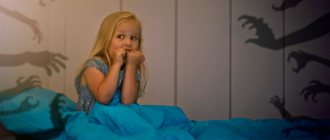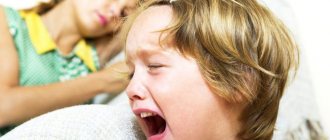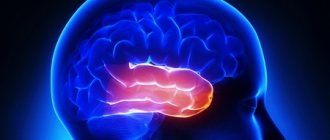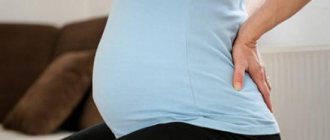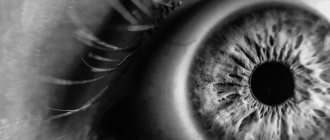The child spent his day actively, walked around, learned a lot of new things and fell asleep. What could be more physiological? But then something incomprehensible happens. The child twitches in his sleep and may wake himself up and cry.
What causes these involuntary movements? What is the cause of restless sleep and do all organs and systems fully rest during it?
Sleep from a physiological perspective
Many parents are sure that during sleep all the child’s vital functions are inhibited. His communication with the outside world is blocked, the senses do not bear any load, and the brain gains strength for subsequent mental work.
This position actually existed until a certain time. Today, many scientists are inclined to conclude that during sleep the activity of certain areas of the brain becomes higher than during wakefulness.
In other owls, the zones that govern a person’s daytime behavior (perception of the surrounding world, physical and mental activity, interaction with other people) “fade into the background” at night. The restoration of their strength occurs in sleep, which generally takes up a third of a person’s entire life.
However, those neurons whose activity increases are able to activate the child’s autonomic functions, provoke sudden movements and even feelings.
How does it manifest itself?
An objective characteristic of sleep is the absence of consciousness and reactions to the world around us. Reduced reflexes give rest to the nervous system.
Sleep does not come to the baby right away. Moving to it from a state of wakefulness, the body goes through several phases (equalizing, paradoxical, ultraparadoxical and narcotic).
Their duration depends on the individual characteristics of the body.
Each of these stages can be accompanied by involuntary motor activity of the baby, especially the initial ones, when the body has not yet completely switched to sleep.
This period when the child shudders when falling asleep is especially typical for infants, who, after emerging from the mother’s womb, are just getting acquainted with the rhythms of their current life.
This is why it is so difficult to put a baby cradled in your arms into bed without waking him up. This is especially true if the stage of falling asleep has not yet ended.
Immaturity of the baby's nervous system
In children who have just been born, the nervous system is not yet fully formed. In the first weeks of life, adaptation to the surrounding world occurs, and this is the main explanation why a newborn trembles. The transmission of signals from the brain to parts of the body is disrupted, so the baby’s movements are nervous and intermittent.
Tremors of high frequency and low amplitude are the norm for newborns.
In most cases, trembling goes away within the first week of life, sometimes lasting 2 months. Twitching is observed in every second newborn. According to neurologists, small patients with this symptom do not need medication.
Some children suffer from tremors for more than six months. The reasons for the child’s prolonged nervousness are prematurity and late toxicosis in the mother. Prolonged shaking cannot be ignored. To exclude serious diseases, pediatricians refer children for diagnostics.
Research using modern tomographs is completely safe. The examination will help ensure that the baby is healthy.
About deep and shallow sleep
The ensuing sleep is also heterogeneous. It contains deep and superficial phases. If in an adult the deep one predominates over the superficial, then in a child it is the other way around. The time spent on deep sleep is several times less than on shallow sleep. That is why, in those moments when the baby is sleeping shallowly, he can “respond” with twitches to loud sounds, jolts of the crib, changes in the position of his body, high or low temperature in the room, and other irritating factors.
This is manifested by throwing away the arms and legs, general twitching, tossing and turning, and the utterance of individual words or sounds.
Scientists have proven that during shallow sleep, emotions experienced the day before can be “scrolled” in the brain. Then children dream. And the peace of sleep depends on their emotional coloring.
By playing very active and active games before rest, overloading the brain with vivid experiences, parents “program” their child for restless sleep.
A newborn twitches in his sleep for reasons completely different from those that cause twitching in adults. In babies, this happens due to their feelings from getting to know a new world for them, an incomprehensible lying position, or an elementary feeling of hunger (in the womb they were not used to eating for hours).
Caffeine in breast milk
Nursing mothers often do not realize that caffeine causes excessive irritability in babies. The psychostimulant passes into breast milk if the mother drinks harmful drinks. In addition to coffee, caffeine contains:
- tea;
- cocoa;
- hot chocolate;
- energy and sweet carbonated drinks.
Doctors from the American Academy of Pediatrics say that a nursing mother does not have to give up coffee if the baby is more than 1 month old. 1–2 cups of drink per day is unlikely to affect the condition of the baby. The maximum amount of caffeine in milk is detected an hour after drinking the drink, but this dose is not dangerous. There are no data on the concentrations of other caffeinated beverages in breast milk.
Premature and newborn babies are at risk of exposure to caffeine: their bodies have difficulty eliminating psychostimulants.
Even a bar of natural chocolate introduces harmful substances into mother's milk. But a woman who is breastfeeding can eat 1-2 chocolates - cocoa beans are rarely used in their production.
What else could be causing the twitching?
The baby's body is a single whole. Problems in the functioning of one or more organs can manifest themselves in the quality of sleep and calm behavior during it.
Thus, colic, a frequent companion of babies switching from one type of feeding to another, can torment a child so much that he feels pain from it even in his sleep and his legs begin to twitch. To reduce them, he tries to take a forced position of the body, turn so that the pain goes away. It’s not easy to do this in a dream, so these movements look like simple twitches.
Another unpleasant companion for young children is pain from teething. In addition, abundant saliva may flow into the nasopharynx, making it difficult to breathe. The sleeping child reacts to this with sudden movements, as if he is nervous.
Viral infections can cause restless sleep. Sore throat, runny nose (similar to allergic rhinitis), cough - these symptoms interfere with normal breathing and can also cause restlessness during sleep.
Neonatal abstinence syndrome
In the first weeks of life, a newborn suffers from tremors if the mother used drugs. It is not necessary for the drug to enter the bloodstream during pregnancy. Some stimulants remain in the body long after a person has quit drug addiction. The symptoms of neonatal abstinence syndrome (withdrawal syndrome) are not the same - it is important which drug affected the fetus. Common manifestations of withdrawal syndrome in infants:
- dotted or spotty rash;
- different colors of the halves of the body when lying on its side;
- excessive sweating;
- vomit;
- tachycardia;
- breathing and sleep disorders;
- blue tint of the skin and mucous membranes;
- prolonged crying.
The doctor should be aware of the child's mother's drug addiction, even if the problem is in the past.
Based on the list of “poisons,” he will decide whether to treat the baby or wait for the drugs to be eliminated from the baby’s body without medical intervention.
In what case is this dangerous?
If a newborn twitches frequently and violently in his sleep, the question “why?” The pediatrician should answer. Myoclonus that occurs for no reason can be the result of serious brain disorders or hypoxia of the tissues of the brain centers.
Such diagnoses are made by an epileptologist based on basic and additional examinations, laboratory tests and monitoring of vital signs.
A cramp that cramps the body or part of it can be caused by neurological disorders, hereditary diseases, or genetic pathology.
Lack of glucose in the blood
Cramps are different from benign tremors. A cramp is a jerk lasting 1-2 seconds. A series of such jerks is observed for more than 15–20 seconds. The baby takes unnatural positions, repeats movements with his mouth or tongue, shakes his head, bends, stops breathing for a while, and may lose consciousness.
The child will twitch even if you put your hand on the trembling part of the body. An attack is likely when the baby is awake, but convulsions often occur in a child’s sleep.
Seizures are among the symptoms of hypoglycemia – low blood sugar.
The risk of the disease is high if the mother has diabetes or has had a pregnancy complicated by preeclampsia. This is a serious condition with increased blood pressure and impaired kidney function. Symptoms of hypoglycemia:
- blue lips;
- pale complexion;
- cardiopalmus;
- lethargy;
- increased sweating.
Tests will show how low your glucose levels are. A nursing mother may need to supplement her diet. Another option to solve the problem is special nutritional formulas for the child.
How to help achieve restful sleep
If parents notice that the child is twitching in his sleep, they should figure out as much as possible under the influence of what factor these movements appear. Among the most common causes that are easy to eliminate are the following:
- a newborn twitches in his sleep if his sleeping conditions leave much to be desired. An example could be a high temperature in the room, a low percentage of humidity, a blanket that is too warm or, on the contrary, unseasonably light. Perhaps an uncomfortable mattress or pillow creates an unphysiological position for the head;
- too noisy around;
- the child did not spend enough time in the fresh air during the day, walks were short-lived or did not happen at all;
- active games took place immediately before bedtime, which led the nervous system to a state of hyperexcitation;
- the daily diet did not meet the baby’s needs in terms of quality or quantity of food eaten;
- living conditions have changed significantly (moving, flying, climate change, buying a new crib for him and other facts);
- sleepwear restricts movement and prevents you from taking a free position;
- diseases mentioned above.
List of reasons why a child starts in his sleep
Quite often, twitching in a baby while going to bed is not associated with anything serious, so before going to consult a doctor, parents should try to identify the culprit behind the child’s twitching on their own.
A baby's sleep is very sensitive and requires conditions as close to ideal as possible. In order for the baby to sleep peacefully and not experience discomfort before bed, you need to pay attention to all sorts of factors that prevent him from doing this.
These include:
- wet laundry. In the first months of life, babies wet their diaper up to 20 times in a row per day. The baby is uncomfortable sleeping, feeling damp and cool, his legs are shaking from the cold and now he is no longer sleeping;
- Tummy colic, which every new parent knows about, can also cause the baby to twitch while falling asleep. Most often, during breastfeeding, air enters the newborn's stomach along with the milk, which puts pressure on the intestinal walls, thereby causing pain. The child is shaking, a tremor appears throughout his body, all this is accompanied by lifting of his limbs and a child’s crying;
- first teeth This fact is familiar even to those who do not yet have their own toddlers. When teething, the child and his parents have to go through all the circles of hell. The baby often feels discomfort in his sleep and wakes up for this reason;
- Another reason can be called “sleepy tremors,” when babies twitch while seeing dreams that excite them. In the process, the child screams and jerks his legs. The last action occurs due to increased muscle contraction and has nothing to do with any kind of disease, so it should not bother moms and dads;
- Elevated temperature also causes convulsions in the child both before bedtime and during it. The nervous system and brain of babies up to one year old are extremely sensitive and irritated by the slightest changes occurring in the body. This phenomenon is not scary and does not carry negative consequences, so the most important thing in such a situation is to reduce the temperature;
- Excessive physical and mental stress can be the answer to the question, why does a child sleep anxiously at night? Everyone knows the phrase: “don’t entertain your child at night.” And it has a completely rational and logical explanation. The baby is not yet ready for a long and too active wakefulness, because of this he can cry, be capricious and have difficulty falling asleep until he reaches the age of 6 - 7 years;
- hypnagogic type fear. Everyone knows that human muscles tend to contract or contract. At the moment of falling asleep, muscle pressure increases and they contract, causing the baby to wake up in fright;
- harsh light or noise can wake up a sleeping baby.
In many cases, cramps can be really strong and create fear not only in the minds of the parents, but also the baby.
It is important to determine as quickly as possible why children wake up and experience discomfort. The sooner the cause is found, the more simply and with the least consequences the problem can be solved.
We recommend reading! Click on the link:
Methods for getting your child to fall asleep independently
It must be borne in mind that seizures in most cases do not indicate the presence of diseases unless they manifest themselves in the form of regular seizures.
Helping a baby who winces during sleep
If the variant of diseases of the nervous system and gastrointestinal tract is not confirmed, parents are able to help their children on their own.
The following actions will contribute to this:
- creating the conditions necessary for restful sleep. The temperature in a children's room is normally 20-24 degrees, and air humidity is 50-65 percent. The room should not be pitch dark; it should be equipped with a night light or small lamp. Every time a baby wakes up, he should see in front of him a cozy, warm place, which is best for parents to decorate with images of fairy-tale characters;
- water procedures, the time for which should be selected individually. There are children who do not sleep well after an evening swim. In this case, it is better to move the bath to the morning or afternoon;
- massage. Foot and head massage is especially well received by children. Most toddlers forever forget about the trembling after an evening massage. It’s not for nothing that even adults often say this about going to a massage therapist: “During the session I fall asleep like a baby.”
If an infant shudders when falling asleep, and wakes up only a few times during the night, there is no reason for serious concern. It will be enough to eliminate all factors that create a barrier for the baby to restful sleep.
We recommend reading! Click on the link:
The most common reasons why a child moans in his sleep
If a child experiences seizures regularly and in large numbers, you should immediately contact your pediatrician. It is important to know that these symptoms may include poor appetite, lethargy and disinterest.
Always remember that early diagnosis of the disease contributes to a speedy recovery.
